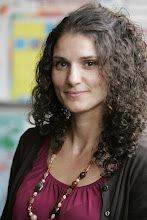Friday marked the end of a major project for the boys - their finished story masterpieces. Over a 3 week time span, the boys worked very hard to write stories that tell the journey of a water molecule as it travels through the water cycle. Writing stories is challenging work, and we tied many writing skills into this process. Very soon, we will showcase our stories and can't wait to have moms and dads come in to hear our young author/illustrators read their stories. The process to get to the final product took lots of commitment and focus:
1. Step 1: Read water molecule stories written by other authors and illustrators and discuss what was effective/not effective about them.
2. Step 2: Set the criteria (expectations) for our own stories - what must be included? How will it be laid out?
3. Step 3: Create a story plan, including characters, setting and a basic plot line.
4. Step 4: Begin drafting the story.
5. Step 5: Write, write, write! Learn some tricks of the trade (i.e. how to use quotation marks, other words to use instead of said, using adjectives to add detail and description).
6. Step 6: Proof read our own drafts for spelling, punctuation, and meaning.
7. Step 7: Trade with a partner and proof read their draft.
8. Step 8: Submit the draft to the "publisher" (aka. Mrs. de Hoog) for a final edit and proof read.
9. Step 9: Write the good copy.
10. Step 10: Create illustrations.
11. Step 11: Create a title page.
12: Step 12: Submit the final manuscript to the "publisher" for publishing.
13: Step 13: Share our stories!
The boys are very proud of their completed manuscripts, and can't wait for them to return from the publisher as bound books! Here's what some of the boys had to say when we reflected about the writing process:
"I had to focus and work hard to finish!" (Logan)
"You have to dedicate your time. Don't make rushes, and you have to be comfortable with what you are writing about." (Michael)
"You cant just stop half way and start again. You have to complete what you started. You need words that help create images." (Conor)
"You've got to be creative and make your words right. Writing has to be creative and detailed." (Sahaj)
"Be confident in what you choose to do." (Jakob)
"It's hard to write a story, and everyone's can be different. On the rough copy it's okay to make mistakes, but on the good copy you need to fix them." (Benjamin F.)
"You need to start a story and finish it, otherwise it's not even worth starting." (Sebastian)
"You have to fix mistakes and try not to make them again. Next time I write I'm going to try not to make those mistakes." (Cameron)
"Writing this story helped me understand the water cycle better." (Ben M.)
When students are completely engaged in the writing process, it's amazing what the end result can be! Many of their comments could be published in a guide for young writers! Hmmm, maybe I'll do just that! : ) It's great to be inspired by young learners!
Sunday, April 25, 2010
Subscribe to:
Post Comments (Atom)


No comments:
Post a Comment